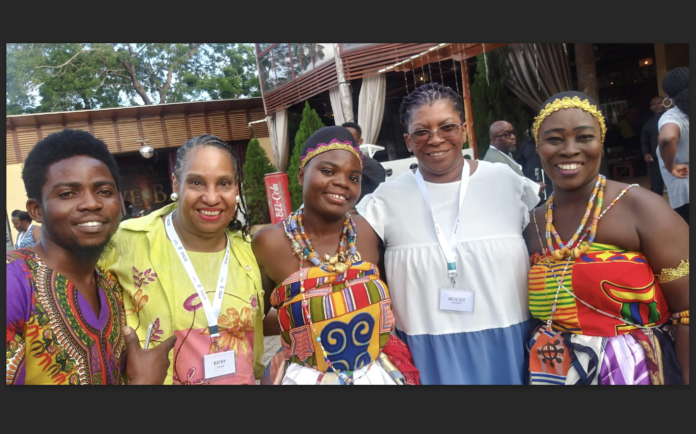by Beverly H. Anderson —
I was returning home.
I left Memphis Sept. 23, a Friday, for a 10-hour flight, 12-day experience to Ghana, West Africa.
My homecoming came via the Sankofa Tour, an international service trip of the International Women of Color Committee of Zeta Phi Beta Sorority, Inc.
This was my birthday gift to myself. I did not know this would be a welcome home experience.
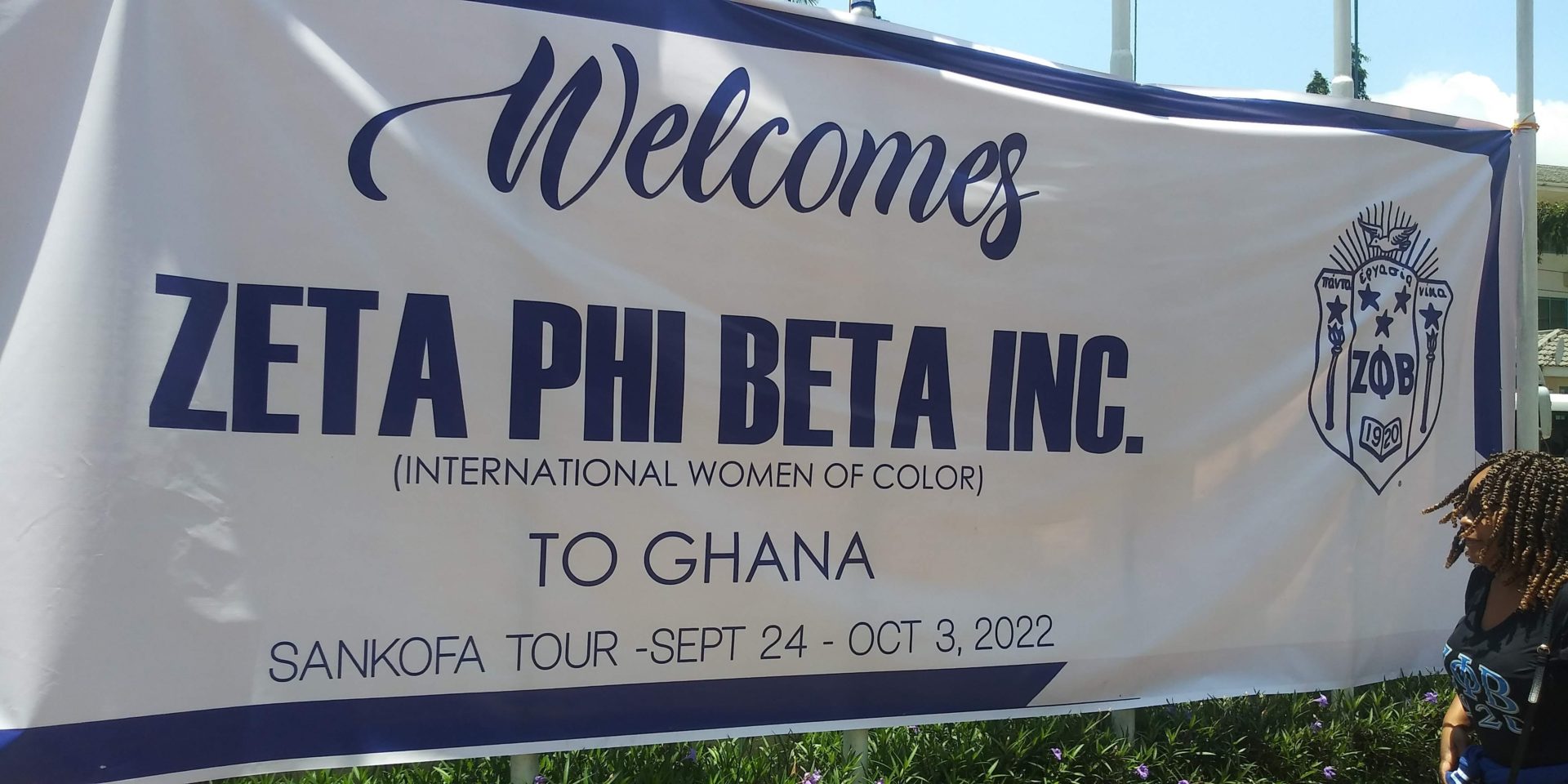
Day One: A welcome celebration
We arrived in Accra, Ghana around 9 a.m. It is Ghana’s capital and largest city. It is located on the Atlantic coast and has a population of about 282,000 people.
Some 160 members of Zeta Phi Beta Sorority, family and friends were met with music and dance from the Amamere Folks Music ‘n’ Dance Ensemble. It was a day of relaxation and reception.
Day two: Sinking by feet into the soil of the motherland
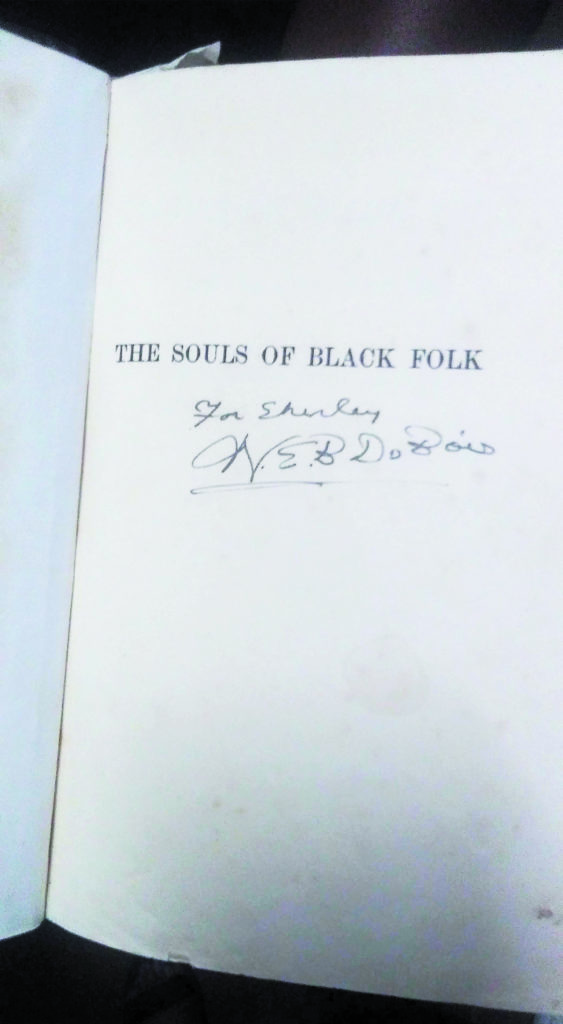
The day started with a visit to the last home of noted African-American scholar, author, historian, and Civil Rights pioneer Dr. W.E.B. Du Bois.
His home is now a museum, highlighting the life of Dr. Du Bois. His body is enshrined there and beside it is the urn and ashes of his second wife.
In the front yard of his home, I just had to put my bare feet on the soil of the Motherland! I had to do it.
Our next stop was the University of Ghana. Professor Samuel A. Ntewusu delivered a stirring lecture on the history of Ghana and updates on the current political climate of the country. An interesting point: Students are required to take African Studies to graduate.
Our last historical stop of the day was Black Star Square. This is where Ghana’s first prime minister and president, Kwame Nkrumah, announced the country’s independence in 1957.
We even got a chance to sing backup for a local rap artist who was making a music video there.
Day three: Empowering women
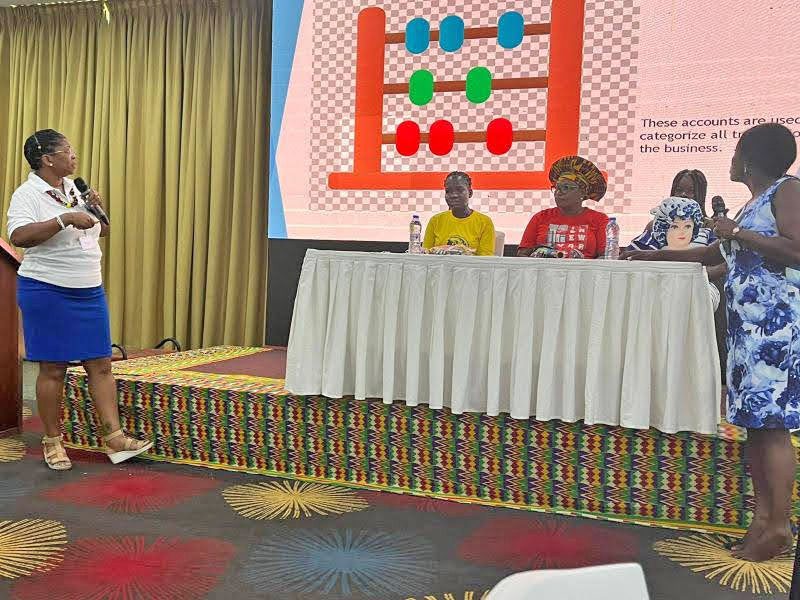
The Women’s Empowerment Conference was hosted in partnership with the Wo Ye Bra (menstrual cycle in Twi) project, a program of the non-profit Infinity Global Empowerment.
The Wo Ye Bra project provides entrepreneur training to women in West Africa. The project was started to teach women to make reusable sanitary pads. This is important because school-aged girls would miss up to two weeks of school due to their menstrual cycles.
Women in the program have advanced to making other products and being able to provide more for their families.
A special highlight for me was an opportunity to present a Basic Business Bookkeeping presentation and facilitate a panel of four of the entrepreneurial women – Anita, Victoria, Salena and Georgina – in the Wo Ye Bra program.
Later that evening, Zeta Phi Beta Sorority held the honorary member induction of Samia Nkrumah, daughter of the first president Ghana, the late Kwame Nkrumah, into the sisterhood.
Day four: Let’s not forget them
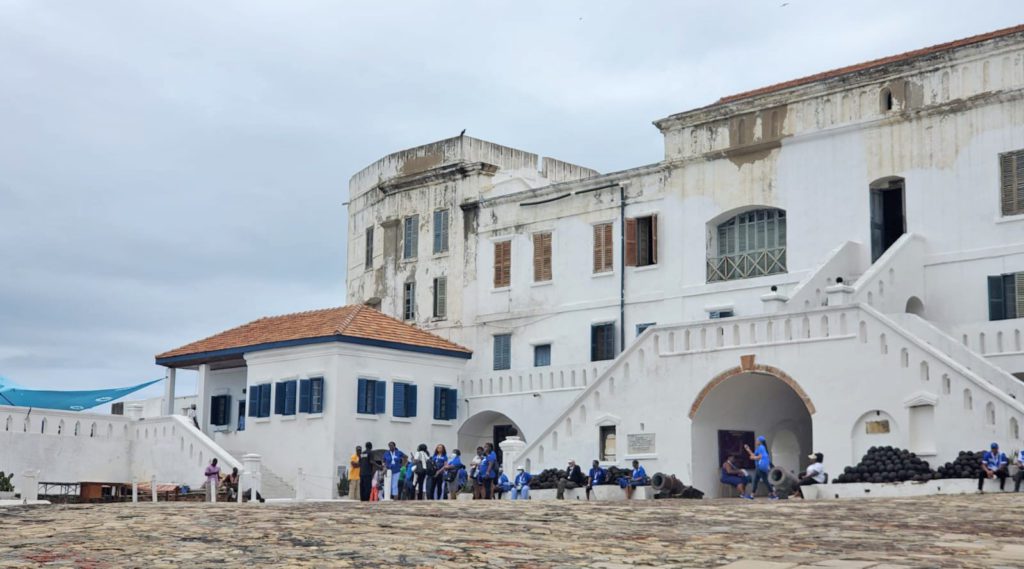
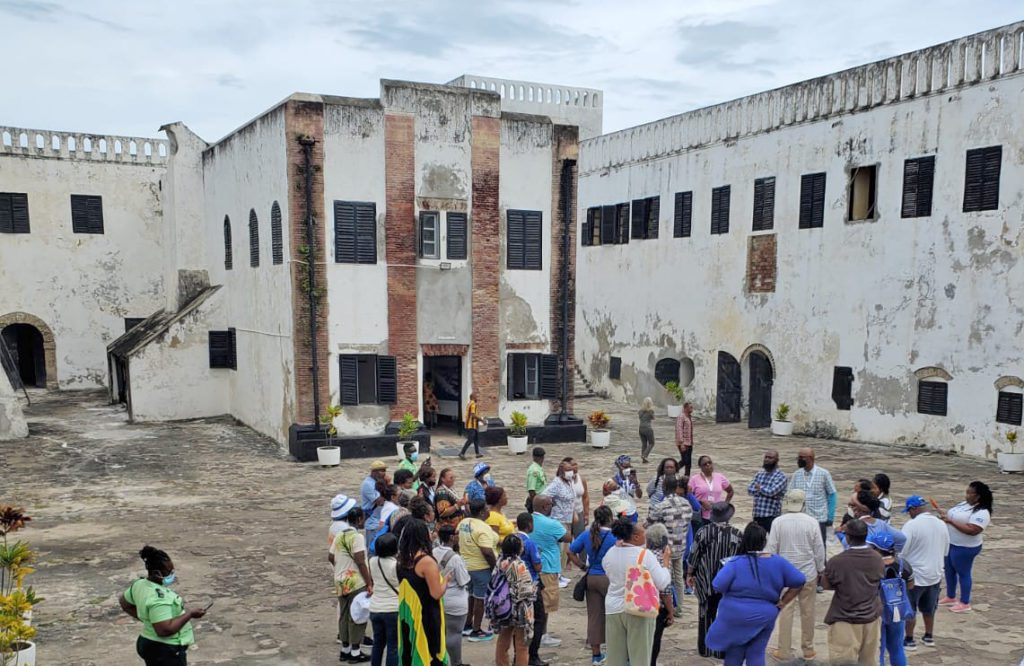
The Elmina Castle is the oldest castle, where Africans were held and sold into slavery.
The Africans were enticed by the Dutch, English, and Portuguese with whiskey, food, and money to convince them that they could make their lives better.
The dungeons were dark, smelly, and small. They held up to 1,500 African men and women.
We were literally standing on the grounds, where our African ancestors stood. Just above one of the dungeons, was the Dutch church, where their scripture, Psalm 132, was posted. Ironic. Emotional.
Day five: My personal day of discovery
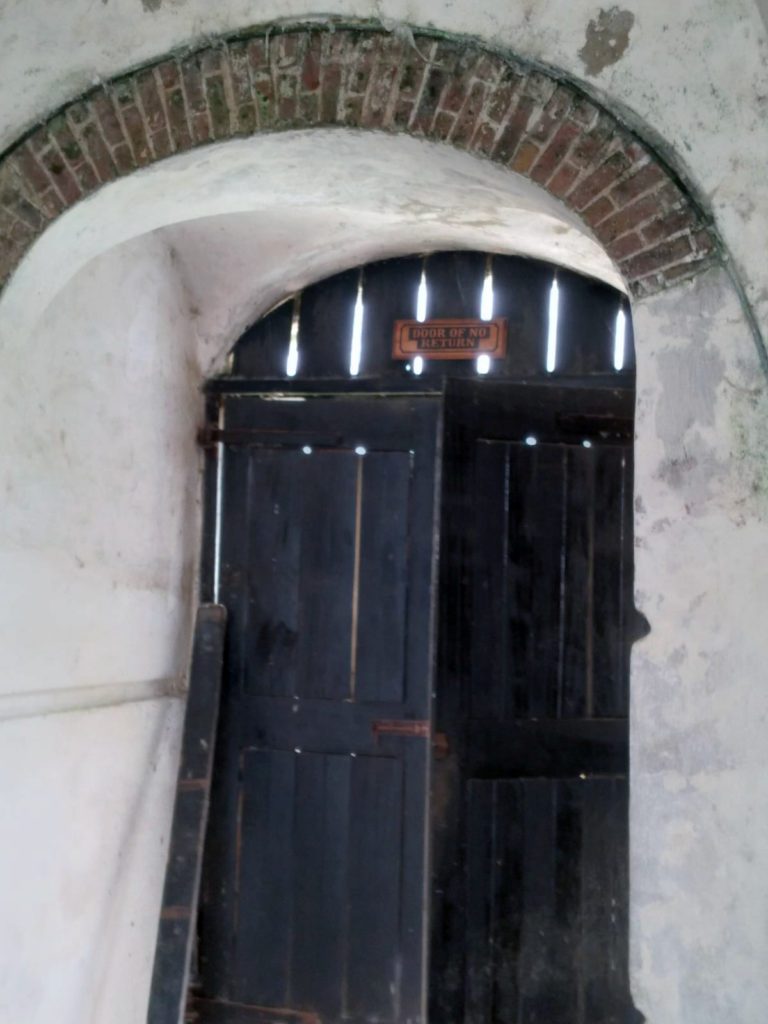
Cape Coast Castle is like Elmina Castle. Dungeon, cells, smells, darkness.
We were standing on fortified human waste because there captured Africans had to empty their bodies in the cells. The waste line was knee deep.
The Door of No Return was where the Africans exited to be loaded onto the boats that were taking them into slavery, never to return to Africa.
The enslaved Africans from this castle were taken to the Caribbeans. My maternal grandfather’s ancestors came into America from the Caribbeans.
I was standing on the very ground that my ancestors stood! As we walked back through the Door of Return, we were symbolically returning the spirit of our ancestors “back home.”
“I’m not African because I live in Africa. I’m African because Africa lives in me.”
Welcome Home!
The castle tour ended with the dedication of the Zeta Phi Beta’s Children Library housed at the castle.
The local schools ended early so the children could attend the opening. It was a pleasure to see these children sitting and reading books that were donated by sorority members.
In addition to the books, Zeta Phi Beta donated laptops to each of the schools who came.
The thought of being in the place of my ancestors consumed my thoughts for the rest of the day.
Day six: A river provides a spiritual return
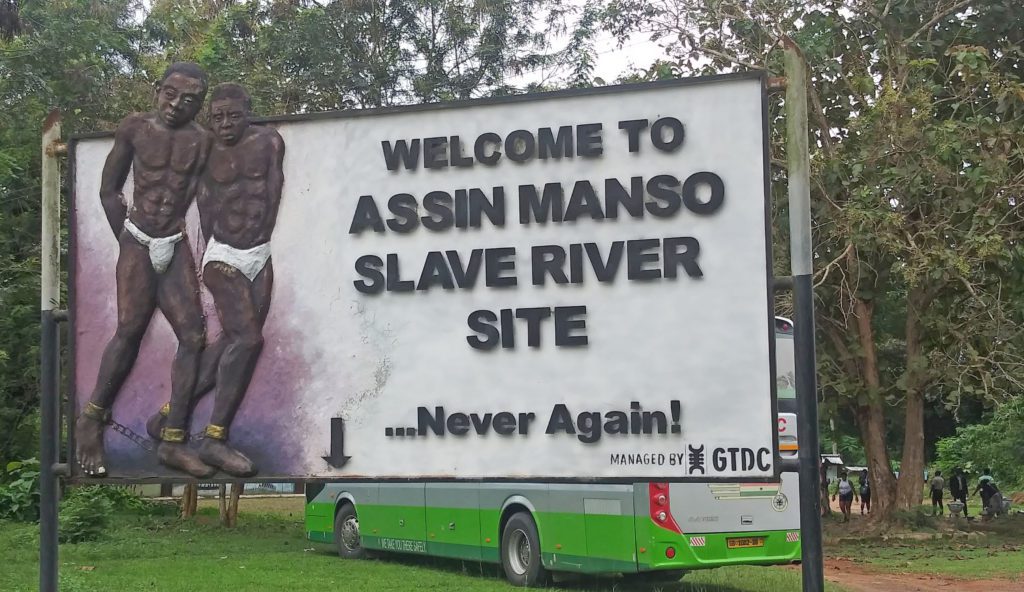
The day’s visit was to the Assin Manso Slave River Site. This is the place where captured Africans were taken to have their last bath before going to the castles.
As we entered, an herb was tied around our wrists and cow clay was put on our hands and heads to ward off negative spirits and attract positive ones.
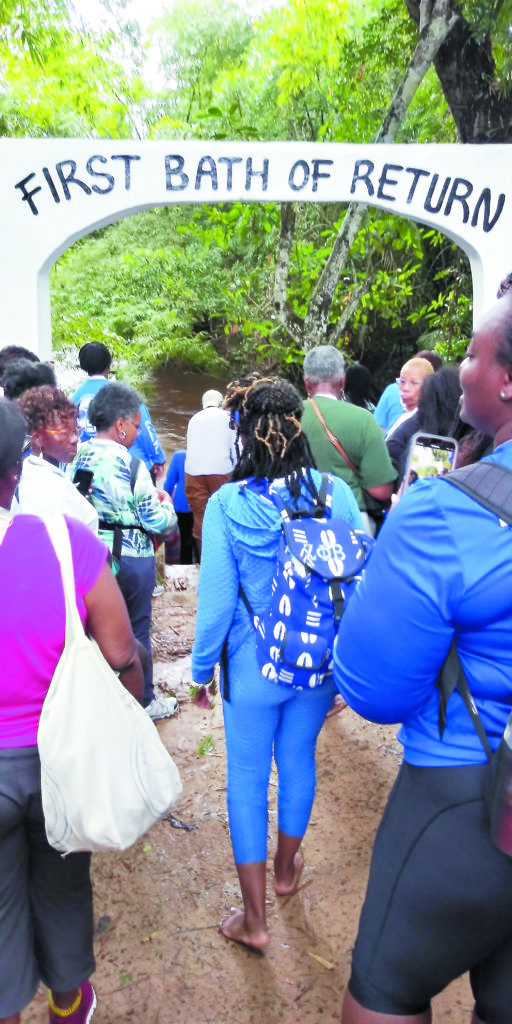 We walked the 10-minute trail to the river. Shoes were optional but I chose to walk bare foot.
We walked the 10-minute trail to the river. Shoes were optional but I chose to walk bare foot.
The ground was wet, mostly overgrown trees and brush. Surprisingly, there was a family living on the path.
The river was just ahead of us. On the path was a ‘station’ where human waste of the named Africans was categorized by the color of their stools.
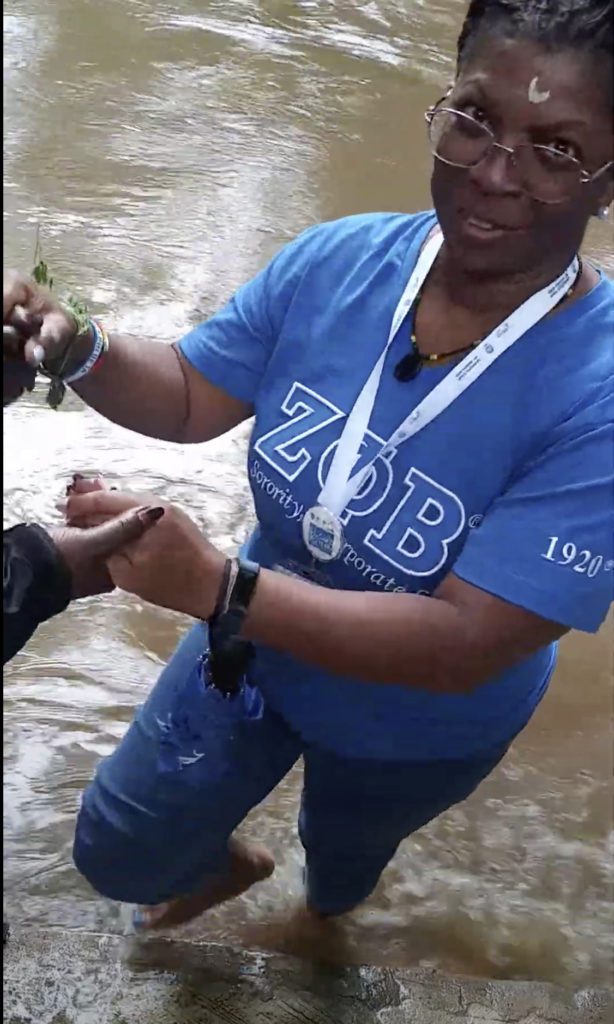
Once at the river, we were able to step into the water, walk back through the First Bath of Return, again, symbolizing the spiritual return of our ancestors to the Motherland.
The water was so cool and felt refreshing. It was truly another emotional and spiritual experience.
Day seven: Providing service
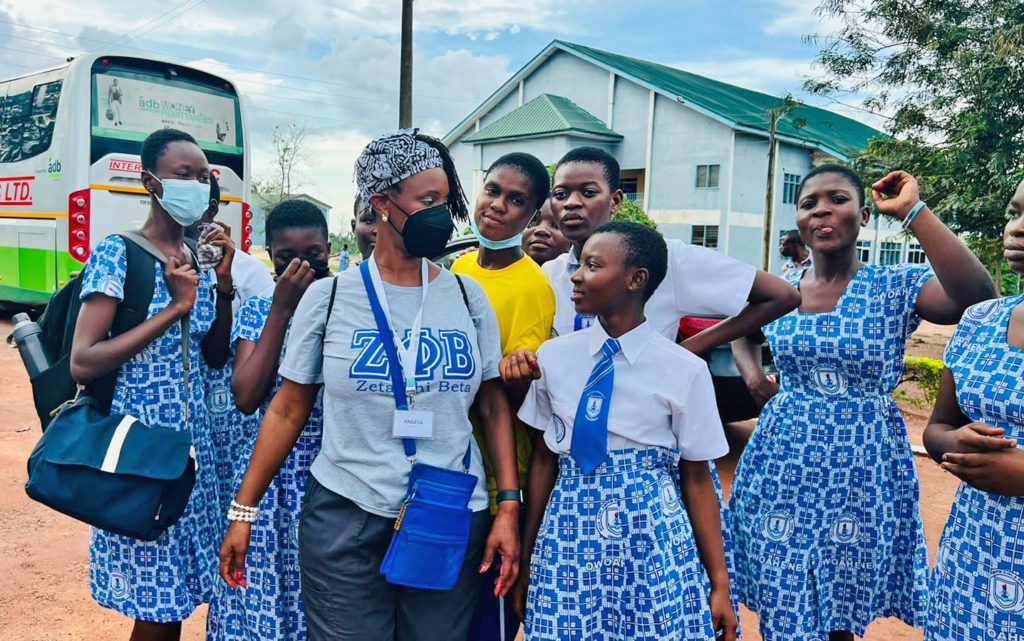
Before the tour, we were allowed to choose a service project. Going to the Afua Kobi Ampem Girls School and the Health Clinic was not my chosen service, but several members and guests visited.
Reports were exciting. Zetas distributed donated school supplies and taught in the classrooms. Others brought donated items to stock the health clinic.
Day eight: Making Kente prints
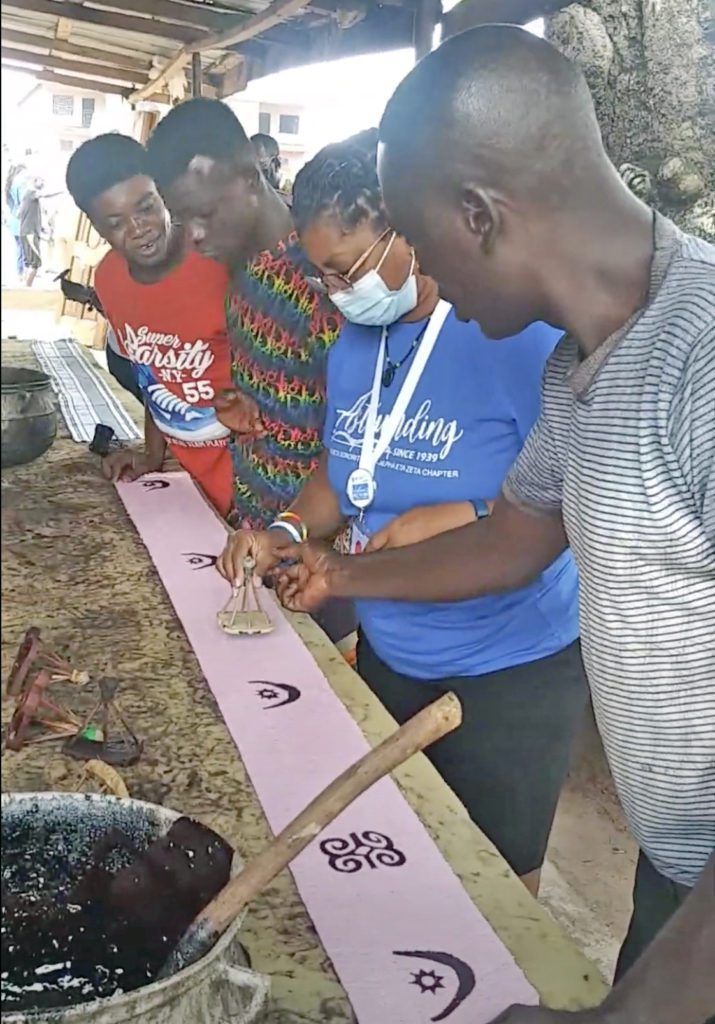
Another exciting tour day: Our first visit to the Craft Villages and the Bonwire Kente Weaving Centre.
It was exciting to see how the beautiful Kente prints that we adore in the States are made manually.
I entered the centre and saw about 10 men manually weaving fabric. No machines or electricity, just eye, hand, and foot coordination.
Of course, the beautiful pieces were all for sale.
Later, Adinkra showed us how dye was made. The African dye makers use bark from a particular tree, pounding it rhythmically and boiling it for days until it becomes a liquid.
Hand crafted stamps are used to imprint the fabrics. The bark used for dye making also is used to fight malaria.
Day nine: Celebrating our last day with a cruise
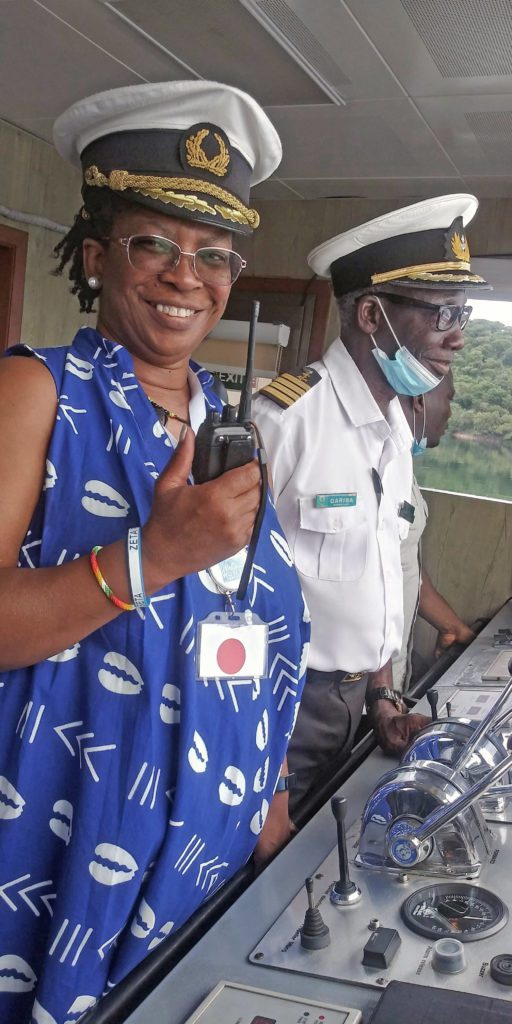
A cruise on Volta Lake, the largest man-made lake in the world, was our last full day in Ghana.
While cruising, we were treated to food, music, singing, dancing while cruising.
The 80-plus-year-old captain is a 49-year sea veteran. This was a great ending to a wonderful trip.
Interesting facts learned in Ghana and about the Ghanian people
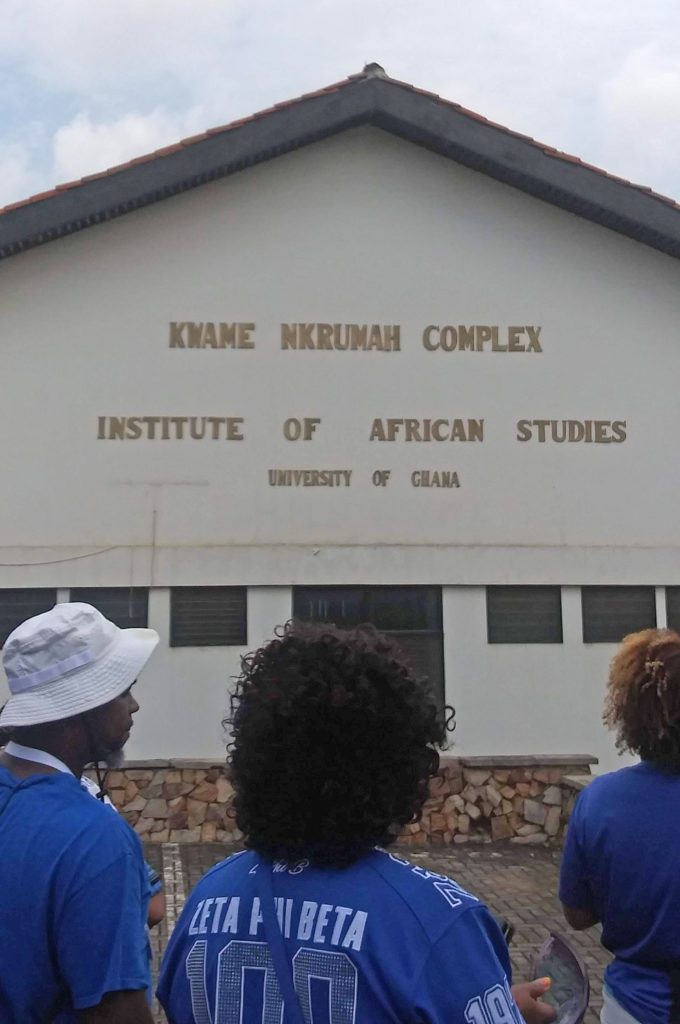
- They are PROUD to be African.
- They honor and revere the ancestors through various rituals and ceremonies.
- They respect their elders; anyone older than they are. We saw an argument between two men obviously due to trying to sell to the same person. There was no pushing, no weapons, no “hold me back” moves. After about five minutes, the obviously younger man walked away.
- The title of Ancestor is given to those who died over the age of 50 AND were respectable members of the communities/villages.
- Engagement for marriage is a process that includes indefinite time, background checks by each family, and dowry for the intended bride’s family. Individuals don’t marry; families do. There are no in-law statuses because each family joins to the other.
- The royal family line is directly through the mother. Only a direct descendent of the mother will become the king or the queen. If her descendants marry, their spouses do not become royalty; they are just married to royalty.
- Children are named based on the day of the week they were born and after eight days after birth. The ceremonial naming is called an Outdooring because it literally takes place outdoors. Ghanaians have two names: their African name and an official government name. My Akan name would be Amma because I was born on Saturday.
- School-aged girls and younger all have exceptionally low haircuts. This is part of the uniform for those girls attending government schools (public schools). Girls who attend private schools can grow their hair.
- Don’t take pictures of official workers like guards and police without their permission.
Some things I observed in Ghana
Sights and sounds at the Kente Weaving Center.
- Slaves are referred to as enslaved Africans.
- African Americans are “welcomed home” and considered to be bringing the spirits of the ancestors back home.
- Villages are communities. Twi is the general language, but villages may have their own dialect.
- Marketing or selling is critical to the economy. EVERY stop there were sellers selling everything from food to fabric to artifacts to electronics.
- People are referred to relationally such as mama, papa, granny, auntie. We are all related.
- Goats and chickens are domesticated and walk the streets just like dogs and cats do here.
- Basic meal consists of rice, green salad, fresh fruit (pineapple, watermelon, and papaya), plantain, and fresh fruit juice. I saw no overweight Africans.
- Basic modes of transportation besides walking, are cars and mopeds. Drivers constantly blow their horns at pedestrians and other motorists. Traffic was congested and looked like there may be an accident at any minute…but there wasn’t.
- Family is important.
- I felt safe!


